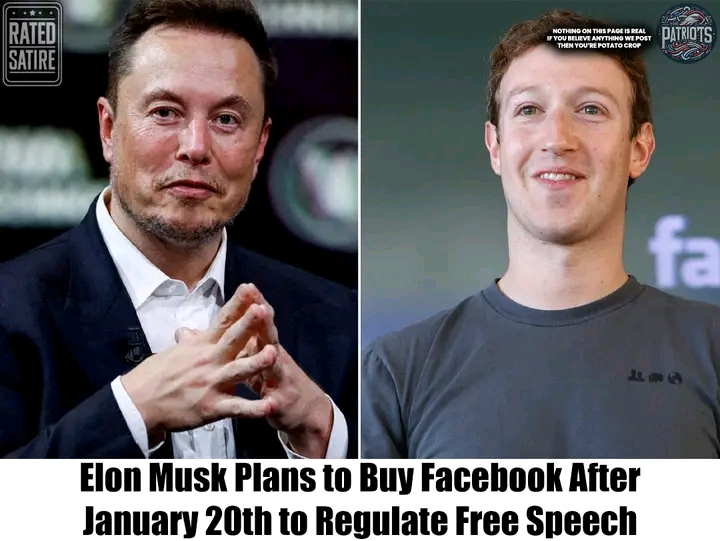NFL
Elon Musk Plans to Buy Facebook After January 20th to Regulate Free Speech

In a surprising turn of events, tech mogul Elon Musk has hinted at plans to purchase Facebook after January 20th, with the goal of regulating free speech on the platform. The announcement has sparked widespread discussion, as Musk’s approach to free speech, particularly on social media platforms, has been a key part of his public persona. His proposal to acquire Facebook, one of the largest social media networks in the world, would mark a significant shift in the way online discourse is governed, with potential consequences for both the platform’s user base and the broader social media landscape.
Musk, known for his leadership at companies like Tesla and SpaceX, has made headlines over the past few years for his vocal stance on free speech, particularly with regard to platforms like Twitter. After acquiring Twitter in 2022, Musk has been vocal about wanting to make the platform a more open space for expression, eliminating what he sees as overreach in content moderation. Musk’s Twitter acquisition has already had a significant impact on the platform, with changes to policies regarding content moderation, user bans, and the platform’s general tone. These changes have made Musk a controversial figure, both praised for his commitment to free speech by some and criticized for enabling harmful content by others.
Now, Musk seems to be extending his vision to Facebook, which, despite being one of the most influential platforms for global communication, has also faced its own share of criticism related to censorship and content regulation. Over the years, Facebook has been at the center of debates about how much control tech giants should have over speech online. Accusations of political bias, suppression of certain viewpoints, and its role in the spread of misinformation have led to increasing scrutiny of the company and its leadership, particularly under CEO Mark Zuckerberg.
Musk’s potential purchase of Facebook could have major implications for the platform’s future. While details remain sparse, Musk’s public statements suggest that his goal would be to loosen the platform’s current content moderation policies, aligning more closely with his approach on Twitter. He has often expressed frustration with what he views as the overreach of social media companies in policing speech, arguing that platforms should allow users to express themselves more freely, even if the speech is controversial or divisive.
One of the primary reasons Musk has cited for his desire to regulate free speech is to protect individual rights and promote open dialogue. He believes that social media platforms have become too restrictive in terms of moderating content, which has led to what he calls a stifling of free expression. By purchasing Facebook, Musk would likely push for a model where users can post content with fewer restrictions, allowing a broader spectrum of ideas to be shared. This could result in more content remaining on the platform, including speech that some consider harmful, offensive, or extreme.